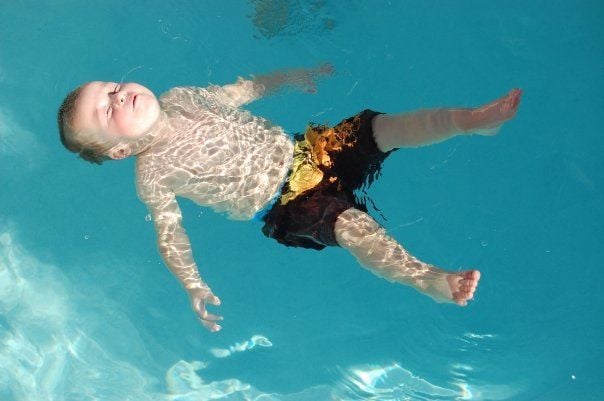Golder Ranch firefighter Justin Lewis said of all the emergencies he sees, drownings and near-drownings are the worst because they so often involve a child.
And as the father of a boy with autism, Lewis knows children like his son are at greater risk due to their intense attraction to water.
Statistics show how deadly that fascination can be: Between 2009 and 2011, the National Autism Association reports, 91 percent of the deaths of children with Autism Spectrum Disorders were by drowning.
“That statistic shocks people,” said Lewis, who started Firefighters vs. Autism in 2013. The goal is not only to prevent drownings but to raise awareness about other issues families face, including one that provides a frightening connection to drowning: the tendency to wander.
A national study published in “Pediatrics” in 2012 shows that of more than 1,200 families surveyed who had a child with autism, about half of those kids had tried to wander away from safety — their home, school, a relative’s house — at least once. And about half of the wanderers had narrow misses with drowning or other life-threatening occurrences, such as being hit by a car.
Lewis is trying to prevent such tragedies by perfecting Puzzle Alert, a notification system similar to Amber Alert.
Puzzle Alert will provide critical information about missing children and adults with autism that will go to subscribers across the United States and in Canada. His group hopes to launch the system in April.
“Nationwide,” he said, “someone with autism goes missing every day.”
He urges parents and caregivers to have people in the community learn about their children, such as how much they talk and how to reach the parents in case of an emergency.
Autism is the fastest growing children’s disability in America, said Nicole Glasner, executive director of the Autism Society of Southern Arizona, with current estimates at 1 in 64 Arizona children. That number is expected to increase later this month, when the Centers for Disease Control releases its latest findings.
Because many kids with autism are attracted to water, the Autism Society helped start the Sonoran Dolphin Swim Club, with classes provided by Saguaro Aquatics for children ages 3 to 5.
Tucson mother Amber Hester said her son loves the water and has since he was very young. She said swim lessons, tailored to children with special needs through Tucson’s YMCA, have provided a wonderful outlet for him.
“The numbers are just so shocking,” she said of drowning deaths. “It was one of my greatest fears. Just imagine being in a pool, unable to swim, and strip away your communication, your self-awareness and your familiarity with your own body.”
Hester said she feels better knowing her son has become more skilled at swimming.
“With autism,” she said, “it’s so hard to gauge what a child actually knows and is aware of.”
Advocates know that it’s easy for children and adults with autism disorders to become overstimulated, Lewis said, so they are trying to help raise awareness among first responders.
Six big guys jumping off a firetruck and barreling into the house can cause someone with autism to quickly experience sensory overload, he said.
“When we go through the fire academy,” he said, “we learn all about the heart and the lungs and the brain, but we don’t learn anything about people with special needs.”





